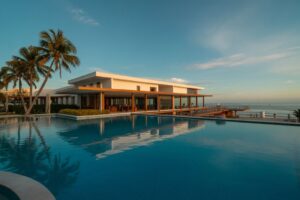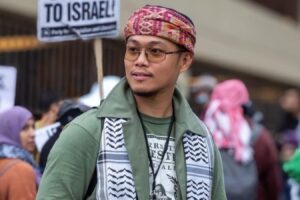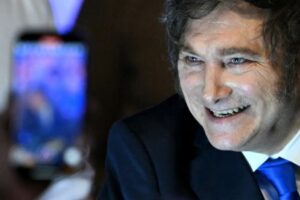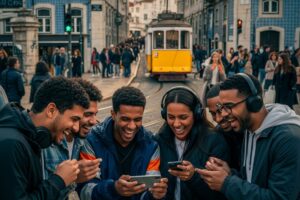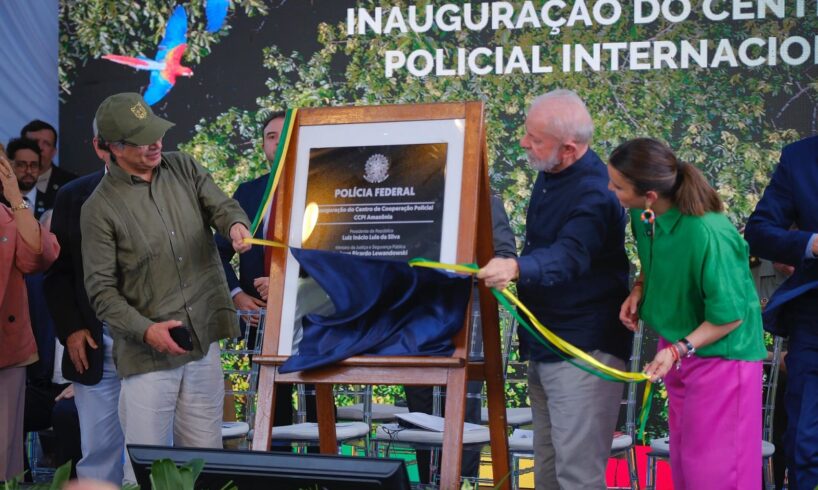
Colombia and Brazil inaugurate a police cooperation center in the Amazon to combat the growing power of drug trafficking mafias Credit: Ovidio González / Presidency of Colombia.
The president of Colombia, Gustavo Petro, yesterday inaugurated in Manaus, together with Brazil’s Luiz Inácio Lula da Silva, a joint police cooperation center in the Amazon. The purpose of this center is to join efforts between the two nations to combat drug trafficking mafias operating in the Amazon.
From Manaus, Petro launched his proposal to “unite all the armies of Latin America, beginning with those of the Amazonian countries, to fight a common enemy: drug trafficking, and to defend the Amazon rainforest as the planet’s main lung.”
The inauguration of the Colombian-Brazilian police center in Manaus took place on the same day that, in Argentina, the security ministers of Latin America and the Caribbean agreed with the Inter-American Development Bank (IDB) on the creation of a rapid response force to combat drug trafficking gangs that are generating growing insecurity in the region.
Colombia’s Petro and Brazil launch joint police center to fight drug trafficking mafias
The Amazon, due to its rugged and isolated nature, is a space where criminal gangs dedicated to international drug trafficking proliferate. The border between Colombia and Brazil shares this problem, and the strengthening of these illegal armed groups goes hand in hand with their cocaine production capacity.
For some time, the Colombian and Brazilian governments, taking advantage of the personal and ideological connection between the two presidents, have sought to establish police cooperation mechanisms to fight these criminal groups.
In this regard, yesterday, Tuesday, Sept. 9, Petro and Lula da Silva inaugurated the Amazon International Police Cooperation Center in a ceremony held in the city of Manaus, in the Brazilian Amazon rainforest.
The event was attended not only by the two presidents, but also by the vice president of Ecuador, Maria Jose Pinto. Ecuador has lived under an almost permanent state of emergency for nearly two years, which the government of President Daniel Noboa uses to confront criminal gangs, whose illicit activities have been reinforced by the profits of drug trafficking.
The purpose of the center promoted by the Brazilian government is to fight environmental crimes, organized crime, and human trafficking in the Amazon. The facility will feature high-tech infrastructure, video monitoring rooms, and intelligence and logistics units. Likewise, it is the first sustainable federal police building in Brazil, being carbon neutral.
According to the Colombian Presidency, the Center will improve information sharing and expedite joint operations against crimes such as arms smuggling, deforestation, and human trafficking.
“Brazil, Ecuador, and Colombia together — too bad Venezuela, Peru, and Bolivia weren’t there. Together we defeat crime and mafias. Latin American unity must be built even upon political differences and conflicts, otherwise the mafias win and destroy our peoples,” Petro wrote on his X social media account after the inauguration of the center alongside Lula da Silva.
Brasil, Ecuador, y Colombia juntos, lástima que no estuviera Venezuela, el Perú y Bolivia. Juntos derrotamos el crimen y las mafias.
La unidad latinoamericana debe construirse aun sobre las diferencias y los conflictos políticos, sino las mafias ganan y destruyen los pueblos.… pic.twitter.com/aSgwUgyRyy
— Gustavo Petro (@petrogustavo) September 9, 2025
A police center for destroying illicit economies to fight illegal armed groups
During his address, Gustavo Petro reiterated his conviction that combating illegal armed groups — whose presence in Colombia has grown in recent years — requires dismantling the illicit economies that sustain them, namely illegal mining and cocaine trafficking.
On this point, the Colombian president repeated a message he has voiced before: “The war on drugs has failed.” To support this controversial statement, Petro pointed to the devastating impact of fentanyl in the United States. “Americans started taking fentanyl and 100,000 people die, when they used cocaine 3,000 died, and when they used marijuana not a single one! And how many people died in Latin America, starting with Colombia?” he asked rhetorically, stressing the extreme violence that drug trafficking inflicts on producer countries.
Finally, Petro revived his proposal to legalize cocaine in order to cut off the main source of revenue for criminal groups. “If cocaine were legalized worldwide, there would be no destruction of our institutions. This is a debate Latin America must have without shame,” he said.
At the same time, the Colombian president stressed the need for greater integration of the region’s armed forces as a tool to guarantee life in the Amazon and free it from illegal groups. “I believe Latin American armies must be integrated, starting with the Amazon, to protect it and to destroy the mafias,” he noted.
Brazilian President Lula da Silva spoke of “multinational crime syndicates,” referring to drug trafficking groups operating in the Amazon. Credit: Ovidio González / Presidency of Colombia.
Drug trafficking groups as ‘multinationals of crime’
For his part, host president Luiz Inácio Lula da Silva warned that one of the most perverse consequences of globalization has been the rise of true “multinationals of crime” — criminal networks operating both inside and beyond Amazonian countries.
He pointed out that these groups thrive in areas where the state is absent, forcing governments to act decisively to restore the rule of law and protect the region’s most vulnerable populations.
Lula underlined that organized crime knows no borders, making a coordinated response among Amazonian nations essential.
He explained that the new International Police Cooperation Center for the Amazon will serve as a permanent hub for intelligence sharing, investigations, and joint operations, supported by cutting-edge technology.
The Brazilian president emphasized that the primary goal is to neutralize the leaders of criminal organizations and cut off their financing mechanisms, thereby delivering a real blow to the structures sustaining these networks.
He recalled that in recent years Brazil has ramped up its efforts through the Amazon, Security and Sovereignty program, carrying out more than 2,000 operations that seized millions in assets and heavy machinery used in illegal mining—weakening illicit gold and mercury routes.
The Amazon: a permanent haven for global drug traffickers
The Amazon is currently the region with the highest concentration of criminal groups in the world, according to a United Nations Office on Drugs and Crime (UNODC) report. It is home to Colombian armed groups led by commanders known as “Mordisco” and “Calarca,” as well as the Border Commandos and the ELN.
On the Brazilian side, organizations such as the Comando Vermelho and PCC operate, while in Ecuador, the feared Choneros and Lobos maintain a strong presence.
The goal of the new police cooperation center is to build institutional capacities along the borders, strengthening state presence in traditionally inhospitable areas in line with the scale of the Amazon’s criminal challenges. However, police experts from the participating countries have already warned this will take time, stressing that investment and political will are essential.
In this regard, greater financial resources will be needed to expand the number of police officers and judges to ensure the success of what, for now, remain political statements of goodwill.
The Amazon rainforest is the place in the world with the highest concentration of criminal drug trafficking gangs. Credit: CIAT Amazon17, CC BY-SA 2.0.

